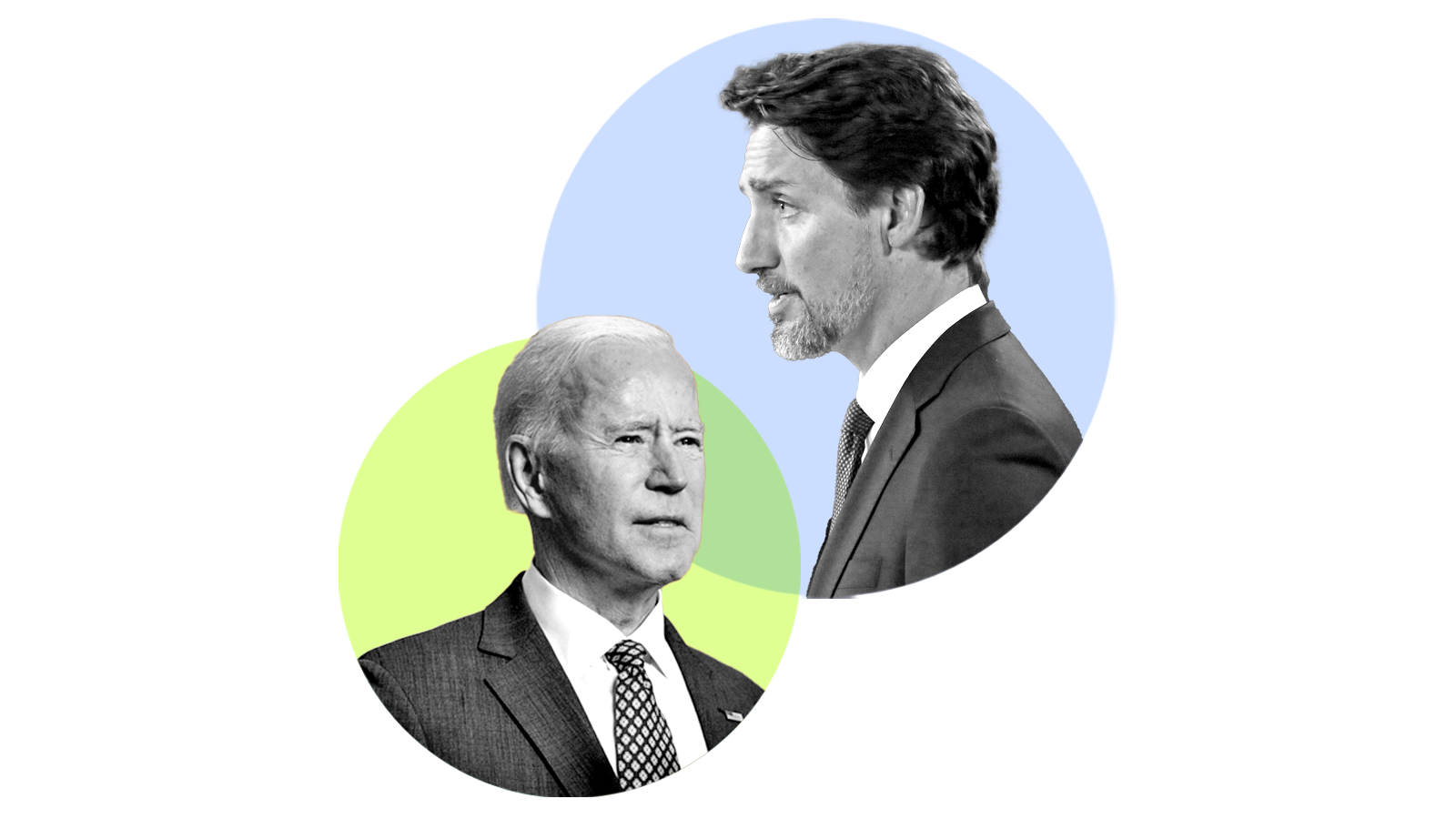
A short-run weekly newsletter analyzing federal climate action during the first months of the Biden administration.
 Hello, I’m Shannon Osaka, and today is Day 38 of the Biden administration. This week, the president started to nail down his Paris plans — and faced Republican backlash.
Hello, I’m Shannon Osaka, and today is Day 38 of the Biden administration. This week, the president started to nail down his Paris plans — and faced Republican backlash.
When it comes to international agreements on climate change, the United States has a reputation for flip-flopping. Way back in 1998, President Bill Clinton signed on to the Kyoto Protocol — in which dozens of countries agreed to reduce their greenhouse gas emissions — but the Senate failed to ratify the treaty. President Barack Obama had the U.S. officially join the Paris Agreement in 2016 — only to have Donald Trump officially yank the country out of the deal four years later. At this point, other nations are starting to get whiplash.
Now, Joe Biden is trying to make the U.S. seem more reliable. The president, who rejoined the Paris Agreement a little over a month ago, has promised to host an international summit on climate change on April 22, in celebration of Earth Day. And earlier this week, Biden met (virtually) with Canadian Prime Minister Justin Trudeau to talk climate, trade, and COVID-19. Both leaders promised to release new national commitments to cut carbon emissions, and Trudeau even threw some shade on Biden’s predecessor, quipping: “It’s nice when the Americans are not pulling out all the references to ‘climate change.’”

Unfortunately, not all U.S. legislators are as happy about America’s return to the global climate conversation as the Canadian PM. Two Republican senators introduced separate pieces of legislation this week to 1) declare the Paris Agreement a treaty, and thus subject to Senate approval, and 2) cut off U.S. funding to help developing countries install clean energy. These bills are incredibly unlikely to pass, and wouldn’t be able to do much anyway — the Paris climate accord was designed as an “executive agreement,” not a treaty, which is why Trump was able to exit it unilaterally.
Ultimately, U.S. participation in the Paris Agreement is good for two intertwined reasons: cutting the country’s own emissions (which currently make up 15 percent of all CO2 spewed into the planet’s atmosphere) and pressuring other countries to do the same. If the U.S. doesn’t set a good example — climate hawks are hoping for a 45 to 50 percent emissions cut by 2030 — Biden and his special climate change envoy, John Kerry, will have a much harder time pressuring China, India, and Russia to lower their carbon pollution outputs. And without at least some support from Congressional Republicans and moderate Democrats, the Biden administration will be hard-pressed to cut emissions as steeply as the rest of the world wants.
Biden intends to go big on climate, but it’s clear that a vocal opposition in Congress is hoping to slow his ambitions. Balancing the conflict at home with expectations abroad is a hurdle the president will need to clear in order to restore — and even entrench — U.S. leadership on the global stage.
But Wait … There’s More.
It’s Pixar’s world, and we’re all just living in it. The United States Postal Service has revealed the design for its new fleet of mail trucks — and yes, they’re adorable and look like they came straight out of WALL-E. But the trucks, which should hit the road in 2023, are a bit of a disappointment to electric vehicle enthusiasts. Biden had previously promised to replace the entire government fleet with electric cars, but some of the new trucks will run on gasoline. The USPS still claims all of the trucks will switch to electric-only power over time.
Check out those rare-earth minerals. The president signed an order on Wednesday asking the executive branch to take stock of the nation’s supply of key minerals, batteries, and semiconductors used to build electric cars. That’s to help the U.S. prepare to ramp up development of those parts and limit reliance on foreign suppliers like China. Conservation groups welcomed the order, but warned that increased mining would have to be accompanied by additional protections for land and water.
The first Native-American Cabinet secretary? Deb Haaland, current representative from New Mexico and a member of the Laguna Pueblo tribe, is on a glide path to confirmation as Secretary of the Interior, after West Virginia Senator Joe Manchin announced Wednesday that he would vote to confirm her. Haaland faced tough questions about her views on oil and gas leasing during her confirmation hearing, with some senators labeling her a “radical.



